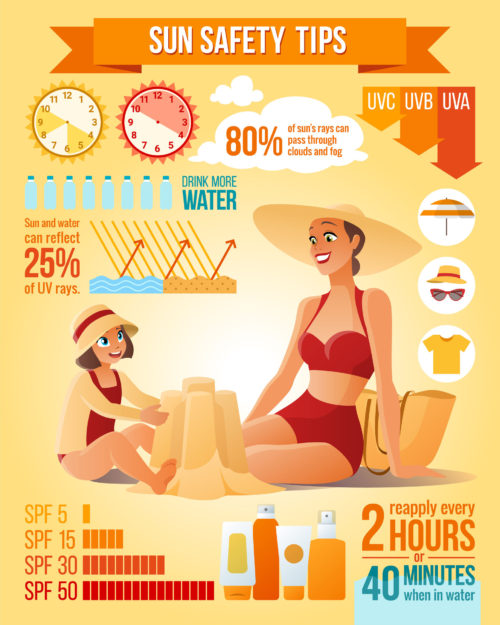In this heat, there is an ever-increasing risk of heat-related complications among diabetics, and people suffering from chronic diseases and those undergoing specific medication, like heart disease medication or diuretics, which are frequently employed to treat diabetic complications
Beat the Heat:
Proper Hydration – Dehydration, i.e. the loss of electrolytes from the body, can occur to anyone regardless of their health on a hot, dry summer afternoon. If you are diabetic, fluctuation in blood sugar level can cause dehydration. When the glucose level rises, there is an increase in the amount of urine excreted. To check dehydration, it is strongly recommended to consume plenty of caffeine-free liquids which are ideal drinks for diabetics – water, Alka-Seltzer or sugar-free lemonade or iced tea. Limit your alcohol intake.

Look out for Heat Exhaustion Symptoms
This is to be observed especially while you are exercising outdoors or at the workplace. Diabetes Patients and chronic diseases like heart disease are more prone to overheating the body. This happens when the patient is subjected to increased temperatures for a long time and the fluids lost are not replenished.
Signs of Heat Exhaustion Include:
- Feeling of dizziness and fatigue as if about to faint
- Excessive sweating
- Cold, moist skin with goose bumps when exposed to heat
- Muscular cramps
- Weak, rapid heartbeat and pulse
- Low blood pressure and dizziness on standing
- Headache
- Nausea

How to Avoid Heat Stroke?
Heat exhaustion is a step away from a possibly serious stroke. On having any of the previously mentioned symptoms, try following these steps.
- Rest in a cool, well-shaded spot, or better, an air-conditioned room. Lie down on your back with your legs in an elevated position.
- Drink cool fluids and avoid alcohol which can dry your throat and make dehydration worse.
- Take a shower, or wipe your body with a wet towel.
- Adjust your clothing, loosen them, or remove any unnecessary garments.
- Exercise in cooler environments – To avoid heat exhaustion while working out, exercise in an air-conditioned gym, or keep your gym timings during early morning or late in the evening when the temperature is relatively milder.

Regulate Your Body with a Good Lifestyle:
Boost your energy with good carbs – Carbohydrates are claimed to be bad for metabolism, and it might convince you to stay away from fruits. This is a perpetuated myth. Carbohydrates are the body’s primary energy resource, and one can easily have one serving – one medium piece of fruit, a ½ cup of melon or berries – per day. This means you can vary your diet with a serving of fruit – ½ cup of watermelon (5.5g), a medium-sized peach (14.5g), ½ cup of sweet-tart blackberries and raspberries (7g).

Build up your Immunity with Vitamins and Antioxidants
Summer fruits and vegetables – arugula, cucumber, zucchini, squash, – are rich sources of vitamins C and A. Vitamin C is a potent antioxidant that fights the side-effects of free radicals resulting from over-exposure to the sun, pollution from smoke and certain processed foods. Vitamin A is necessary for healthy skin. Also, red summer fruits are abundant sources of antioxidant lycopene which helps defend the body from sun damage, according to a study conducted by University of Manchester.
Test Blood Glucose Levels Regularly
Verifying your glucose levels after fixed intervals is crucial to making sure that your insulin hasn’t gone bad, or the pump isn’t faulty. Check the blood sugar levels a minimum of four times a day with a one-touch glucose meter, more often if you are feeling unwell.
Protect your Insulin and Testing Supplies
Avoid exposing meters, glucose monitor, test strips and insulin to direct sunlight. If medications are outside as in during picnics or beach outings or in a locked car, pack supplies in a dark, protective carrying case with an ice box to avoid damage by severe heat.
Keep the carrying case and supplies dry, as testing equipment when left unattended in humid conditions tend to malfunction and give inaccurate test results.
Travel with an additional supply kit in a separate luggage bag, to make a backup in case the first set is spoiled. Do not use test strips from cracked or puffed bottles. When boarding a flight, keep essential medication and equipment like Accu-Chek Active Strips and Accu-Chek Glucometer in hand luggage to avoid any damage due to the high temperatures in the plane’s cargo hold. Accue-chek, Ozochek, Accusure, OneTouch and other best brands with best discounts are available in www.metromedi.com.
